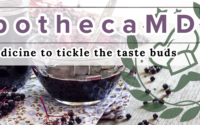Rosa Damascena mill for treating adults’ anxiety, depression, and stress: A systematic review and dose-response meta-analysis of randomized controlled trials
Phytother Res. 2021 Dec;35(12):6585-6606. doi: 10.1002/ptr.7243. Epub 2021 Aug 18.
ABSTRACT
Recent studies have reported conflicting findings on the antianxiety, antidepressant, and anti-stress properties of Rosa Damascena Mill (RDM). Therefore, the present systematic review and meta-analysis were conducted on the effects of RDM for treating anxiety, depression, and stress amongst adults. The online data sources of Cochrane Central Register of Controlled Trials, PubMed, Scopus, Web of Science, Embase, ProQuest, and Scientific Information Database were searched from inception to June 30, 2021. The randomized controlled trials (RCTs), which examined the effects of RDM (in any form of administration) on adults’ anxiety, depression, and stress, were included. A random-effects model was applied to pool the data, and a total of 32 publications were included. The results of the meta-analysis revealed that administration of RDM significantly reduced state anxiety (effect size [ES]: 24, standardized mean difference [SMD]: -1.74, 95% confidence interval [CI]: -2.29, -1.20; p < .001), depression (ES: 7, SMD: -0.87, 95% CI: -1.47, -0.28; p = .004), and stress (ES: 4, SMD: -1.33, 95% CI: -1.98, -0.69; p < .001). However, the treatment had no significant effect on trait anxiety (ES: 6, weighted mean difference: -0.75, 95% CI: -1.93, 0.43; p = .214). The association between the total administration dosage and/or duration of RDM and the changes in state anxiety and depression was not dose-dependent. Most RCTs had a fair methodological quality based on the Cochrane risk of bias assessment tool. Besides, the quality of evidence ranged from very low to moderate according to the Grading of Recommendations Assessment, Development, and Evaluation (GRADE) approach. Hence, further high-quality RCTs are needed to draw reliable conclusions regarding the use of RDM for treating adults’ anxiety, depression, and stress.
PMID:34405933 | DOI:10.1002/ptr.7243

